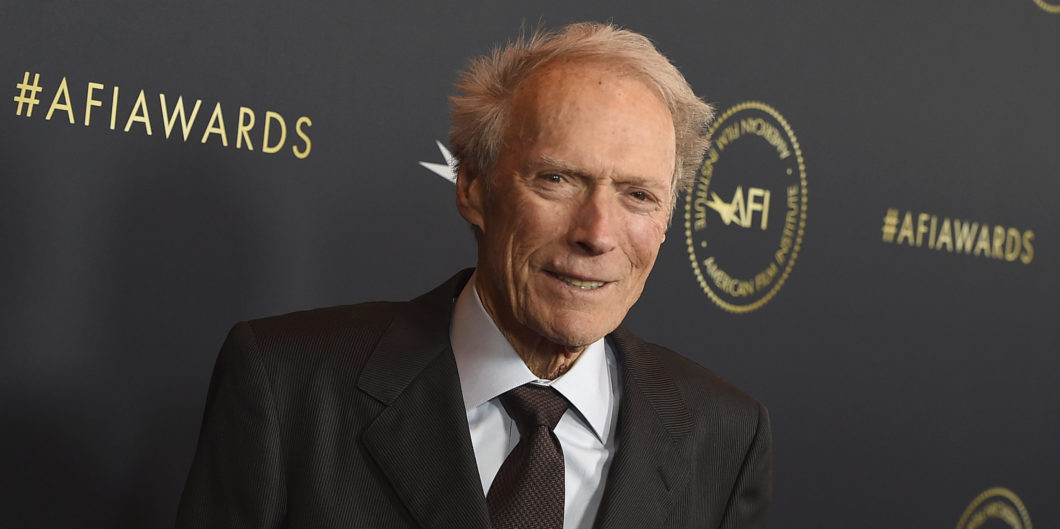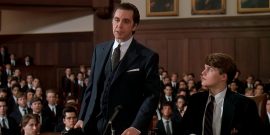Is James Bond now part of today's culture of toxic masculinity?
Honoring Clint Eastwood
The most famous conservative artist in America is Clint Eastwood, by a long shot. He has just turned 90 and may still be working—he made eight movies in his eighties, after all, including two starring roles. He has won four Oscars, two as director and two Best Picture Awards, and was nominated for seven others, including for Best Actor. And of course, decades back he was an incredibly popular actor—Dirty Harry is as likely to still be an iconic film in a century as anything else.
Conservatives love Eastwood and, in a unique moment, he showed how seriously he took politics by appearing at the 2012 GOP Convention, to speak against Obama—America’s absentee president, he suggested. He once successfully ran for mayor of his small town, Carmel, California, apparently because he didn’t like the busybodies in charge who made it their business to harass the townsfolk, and proceeded to be an uneventful mayor, leaving people free.
The list of his honors is too long to recount—we can only mention the highlights: France awarded Eastwood the Legion d’Honneur, the highest civilian distinction of that country. Emperor Akihito awarded him the Order of the Rising Sun, the highest honor bestowed on civilians in Japan. Indeed, Barack Obama awarded him a medal for the humanities (along with Bob Dylan—but both refused to attend the ceremony).
Nobility and Honors
Yet neither President Bush nor President Trump awarded Eastwood the Presidential Medal of Freedom. Try as I might, I cannot understand how conservatives can fail to do so, but it happens again, every year of every new administration. Is it some form of contempt? Mere indifference? Are Republicans or conservatives trying to defend a reputation for philistinism, to prove they don’t care about the most influential and the most American form of art?
Of course, there is very little anyone, presidents included, can do for Eastwood, whose fame is likely to last longer than most presidents. Really, at this point, to honor him with the Presidential Medal of Freedom is to honor ourselves—to remove a source of shame from our political conduct—and to inspire conservatives in the arts, a very important matter we ignore to our very great detriment.
Even in our most exalted formalities, we seem to be led as conservatives by contempt for the only people who can get the ideas we cherish across to very large audiences. We reject the arts and the work of imagination, as though they were nothing compared to business and managers, but then we turn around to complain that there’s no patriotism left and we don’t know our history. Are we secretly so full of self-loathing that we shun the most popular among us? Is it base envy? I do not know, but I feel ashamed.
I suppose this ignoble behavior helps prove that those artists who are conservatives are true believers, since they can expect no honor. We don’t have aristocrats born in the saddle, booted and spurred to ride us, to recall the phrase of Thomas Jefferson. Instead, we honor by free choice those who prove they serve the public—or we should, at least, and it is a stain on our honor if we fail.
To a significant extent, the Medal of Freedom itself has become a sham, as many such honors have. In America, this is mostly the fault of Republicans, since they have dominated the presidency since Nixon got elected in ’68. As with past failure, so with future success—one sign of a revival of seriousness among Republicans will be seriousness about the signs of honor presidents bestow on behalf of America. In our times, Trump rewarded Rush Limbaugh and billionaire Sheldon Adelson’s wife, while Obama rewarded his own VP, Joe Biden. Celebrities receive the award, too, but it’s mostly cronies. It’s not men and women we know as great benefactors—indeed, it seems to be a consolation prize for those who have failed to earn our gratitude. Worst of all, the recipients are unknown to us—as though honors are bestowed to the members of a superior class above our heads. What’s more contemptible than self-flattery by proxy perverting the authority of the republic?
Citizen-Heroes
While our authorities have become sadly contemptible, unconcerned with the noble and easily reduced to paralysis in government and mere partisanship on TV, Eastwood has dedicated himself to the restoration of the dignity of manly patriotism through the portrayal of American heroes or ordinary people who had one heroic moment, in almost all cases true stories. I wrote about this a few years back, but the story needs updating given his new work.
Just last year, in yet another Oscar-nominated movie, Richard Jewell, Eastwood told the story of the eponymous security guard who prevented the Atlanta Olympics bombing in 1996 from killing perhaps hundreds of people. That moment of heroism sufficed to ruin him, as the FBI and the press treated him like the perpetrator, despite the absence of evidence. Jewell was eventually cleared, he sued various organizations for libel and almost all settled, but he died a sorry death in middle age, in 2007. Just the year before, Georgia Gov. Sonny Perdue publicly honored him.
Eastwood more than any other filmmaker should receive praise for having seen the political conflicts of our time coming—at least as far back as 2008’s Gran Torino, a story of a working class veteran hero against political correctness. With Richard Jewell, he adds another dimension to the story of citizen heroes—enmity to elites who toy with the lives and reputations of Americans like fickle Greek gods with the unfortunate souls they lord it over.
Jewell seems to have wanted all his life to be of some service, mostly failing for various reasons, but redeeming himself in one moment when no one else was there to save the innocent spectators of the Olympics. In that moment, a person without a powerful office or an important job or prestige or popularity made the difference between life and death. The desire to prove nobility by service sufficed. Then he was punished for it.
We should abandon our slavish love of celebrity and return to honoring the honorable—those men and women who serve rather than flatter us.
This may seem like a series of accidents, but in Eastwood’s mind it comes together as a series of conflicts between patriotism and celebrity, between prestige and decency, between arrogance and freedom, between institutions and men, and finally between two visions of America, one of which is cruelly inhuman. This wonderful movie deserves a wide audience and serious attention—it is just not as pleasant to watch as many recent dramas, but it serves a very serious purpose.
As successful as a movie as Richard Jewell is, so much is The 15:17 to Paris a failed experiment. But it is the epitome of Eastwood’s desire to reveal to audience true American heroes—in this case, he simply had the young men play themselves: Spencer Stone, Alek Scarlatos, and Anthony Sadler, who saved innocent travelers on a train from an Islamic terrorist at the risk of their own lives. They were awarded the Legion d’Honneur as well, in France; in America, they were received by then-president Obama, but, strange as it may seem, they were not comparably honored.
Their honor will have to be this movie. It’s a failed experiment because they are not good actors and because there are certain difficulties of a dramatic character—but even so, it reveals the strange situation we live in. These are just three young men on a European road trip, mere tourists looking for a good time and gawking at the various entertainments and sights—then in one moment, everything changes into the sort of terror we are used to seeing in Hollywood productions, except that they were involved in it personally.
The movie shows that these young men were prepared for heroism by the military, to which they owe an education unique in America. It is not just a strong love of country, nor just a manly eagerness to act, to do what’s right, and to take responsibility for others—they also possessed the skills, experience, and instincts required to make the difference between life and death. These men were tested and they proved true.
So in one sense they’re as clueless as our young are in general—but in another sense, they have important resources to draw on; I should add friendship to their other military virtues, as their loyalty and ability to act together are also exemplary. They seem less lonely, anxious, and depressed than many much more successful people, truth to tell—and it’s a shame Americans so seldom look on manly institutions with an eye to understanding them as a source of civic friendship. We see here what our culture mostly ignore—the spirited nature of American young men, which requires education, that is, good habits.
Making Men
Eastwood’s late movies suggest that young men lack the opportunity to act. Our society does not prepare them for adulthood. Worse still, manliness is something worse than illegal—it is unthinkable to most of polite blue-state society. Outside conservative bastions, a few men still inherit it from their fathers. Others acquire their manly skills and disposition from the military, some get it when they are trained for work. Eastwood knows that men need strife in order to strive and thus become serious. It is not softness, but hardship that makes them men. The protagonists in these movies would have no claim on our attention, much less gratitude, had not they faced great difficulties and they would not have a claim to self-respect, either, without proving themselves by their service to the nation.
His legacy depends on whether we also take seriously the problems we face with educating men. This includes, of course, educating artists who might portray our problems, our character, and our likely solutions. No one else is doing as much as Eastwood to persuade us to take seriously the requirements for the one moment of heroism that defines a man or his legacy. But we are free people in a free country—he cannot be patriotic and practical in our place—we have to do it for ourselves, however inspired and guided by him. We should wake up from our ignorance of the problem of manliness and I cannot think of any better way to start than by honoring Eastwood with the Presidential Medal of Freedom—an opportunity for the country to show its gratitude and thereby the good judgment to know who benefits us—but also an opportunity to change how we think about the importance of nobility. We should abandon our slavish love of celebrity and return to honoring the honorable—those men and women who serve rather than flatter us.



